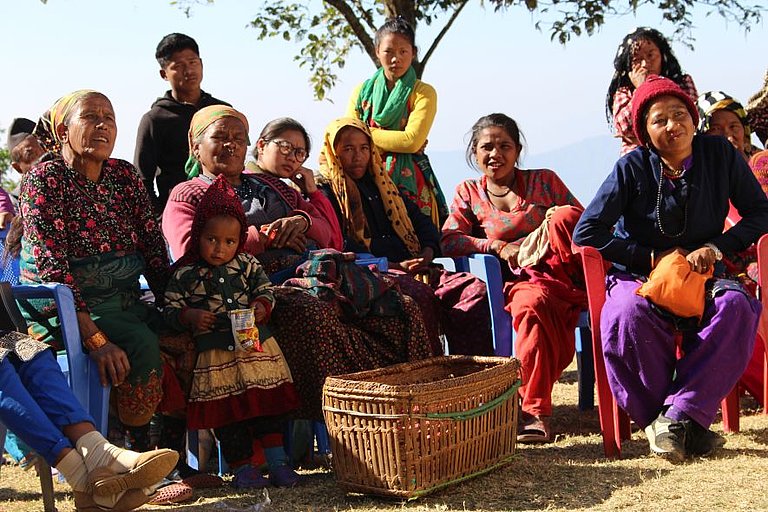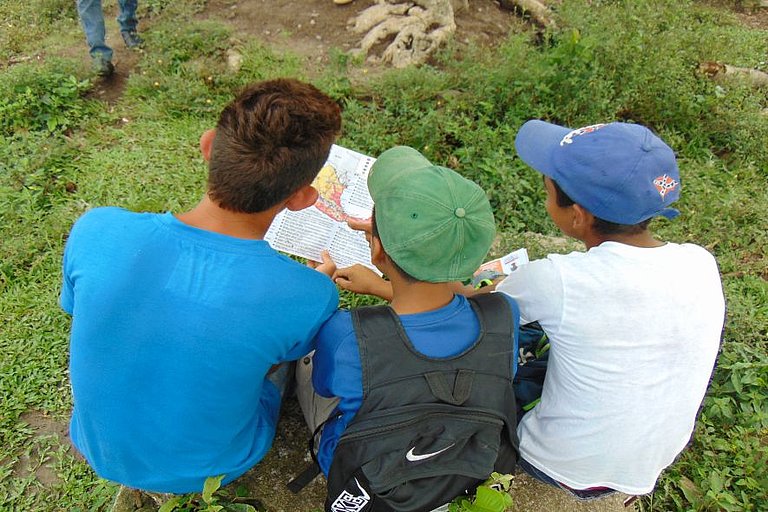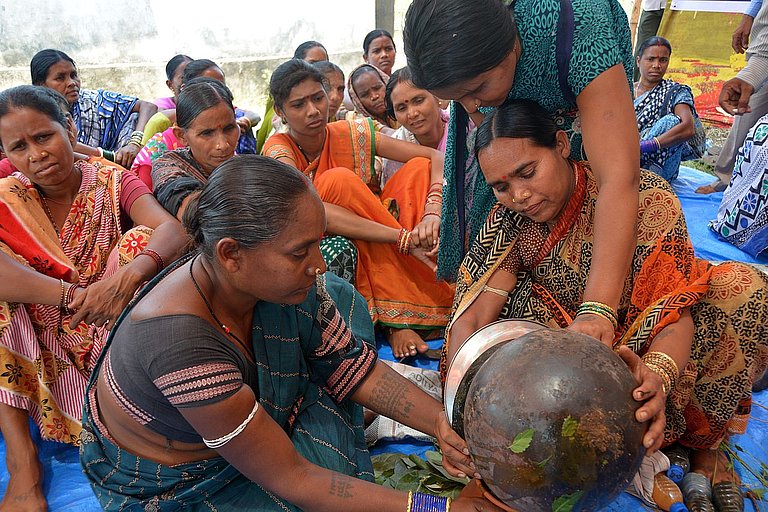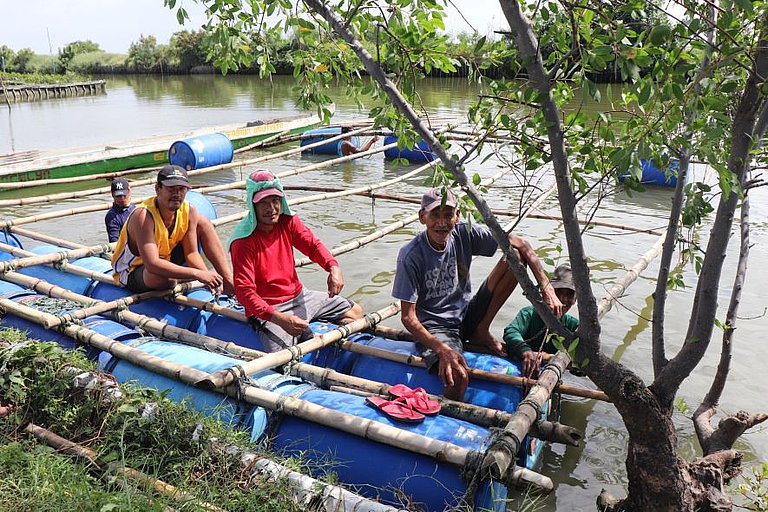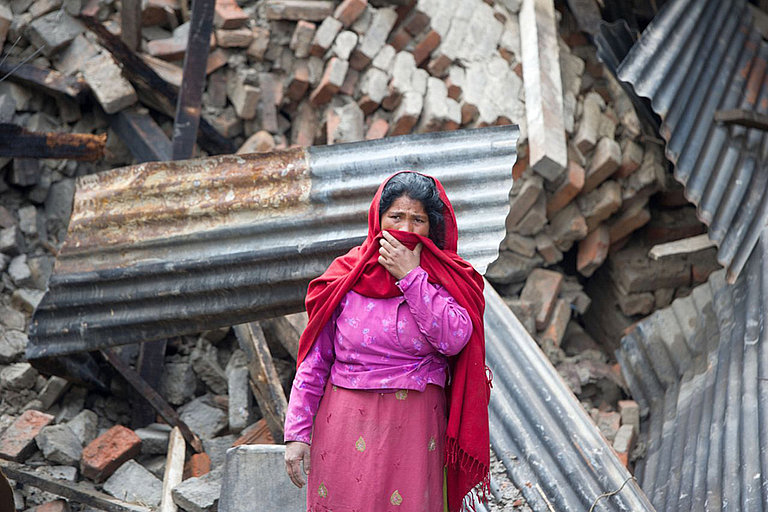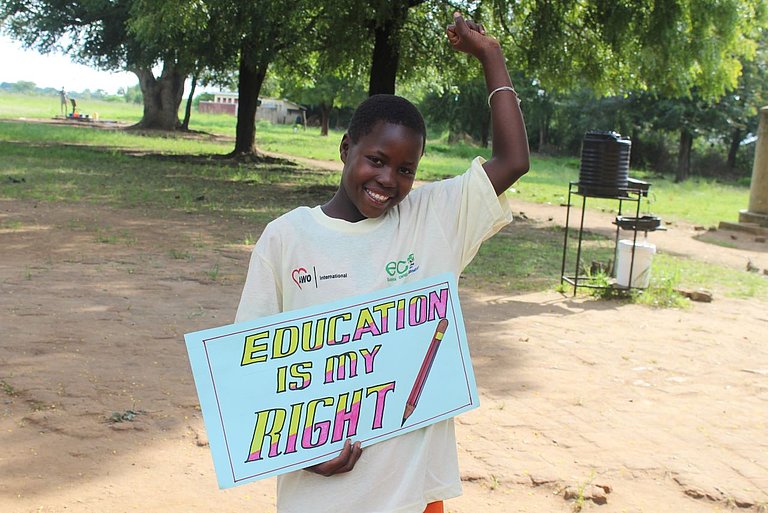More than 70 percent of women worldwide are at risk of poverty. In some countries, up to 7 out of 10 women experience violence. Women have less access to land or credit than men - and still produce up to 80 percent of the food in many regions. Together with partner organizations, we are committed to strengthening women's rights. Because empowering women also means fighting poverty.
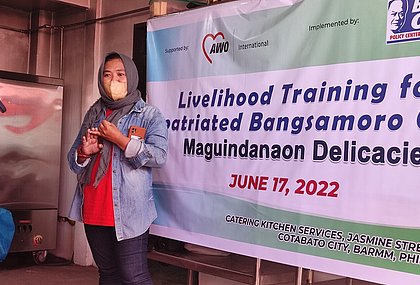
Combating human trafficking in the Philippines
The COVID-19 pandemic and its lingering effects increase the risk of Filipino domestic workers becoming victims of trafficking and other forms of exploitation. In 2021, AWO International and the Philippine NGO Ople Center formed a partnership to respond to these new challenges for Filipino migrant workers.
more information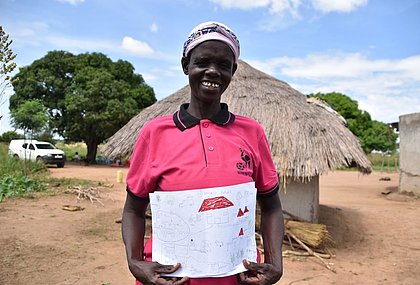
Securing livelihoods and promoting social justice
The project region Otuke is a rural district in northern Uganda. The region is one of two areas most affected by malnutrition. In general, the undernutrition situation in Otuke is exacerbated by a number of overarching problems. People in the region face acute challenges such as food insecurity, limited access to safe drinking water and poor hygiene practices.
more information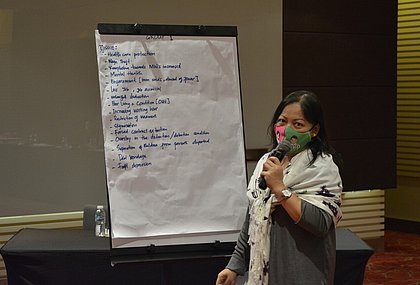
Promoting the rights of migrant workers in Southeast Asia
Labour migration in Southeast Asia is a phenomenon that has existed for centuries. Despite the economic benefits for countries of origin and destination, the situation of migrants and their access to social services is often precarious. Since 2021, AWO International, together with its local partner organisation Migrant Forum Asia (MFA), has been campaigning for the rights of migrant workers in Southeast Asia.
more information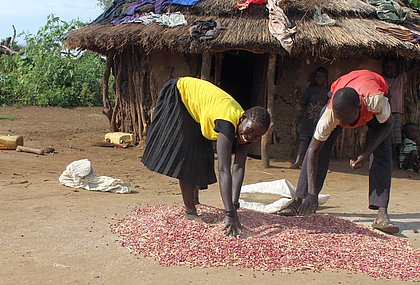
Fight against human trafficking in Karamoja
Together with our local partner organization ECO, we support smallholder families in Karamoja to improve their living conditions, food and nutrition security, and reduce their risk of becoming victims of human trafficking.
more information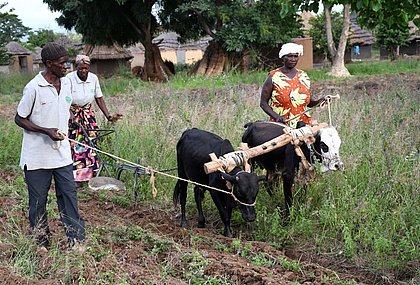
Climate Action Model Villages in Uganda
In Uganda, the devastating effects of climate change are clearly visible: wilting crops, flooding and dry wells threaten the food and livelihoods of a population largely dependent on agriculture. To address this acute threat, we launched a project in October 2022 with our Ugandan partner organization AFARD, bringing together food security, environmental protection and disaster risk reduction.
more information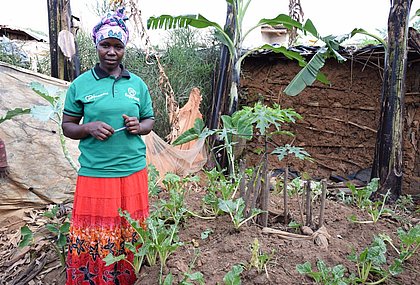
Improvement of living conditions in the Nakivale refugee camp
In Isingiro District in southwestern Uganda, the proportion of refugees is 19 percent. With our partner organization COVOID, we are improving living conditions for refugees and locals by strengthening nutrition, income and social cohesion.
more information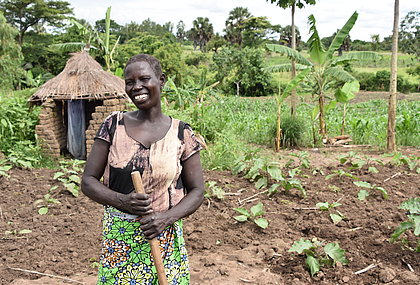
Food Security and Empowerment of Refugees and Host Communities in Uganda
West Nile is the biggest host of refugees and asylum seekers in Uganda. Majority of them face persistent realities of food insecurity, malnutrition and climate change. Together with our partner RICE West Nile, we support refugees and asylum seekers to improve their situation and strengthen their resilience.
more information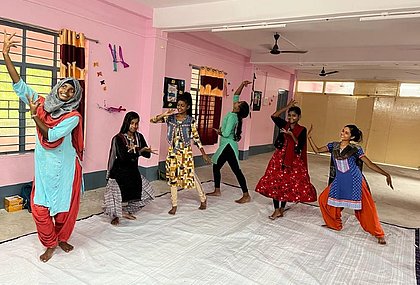
Human trafficking and traumas - a way out through dance and movement therapy
In the foothills of the metropolis of Kolkata in the Indian state of West Bengal, AWO International works with the partner organization Kolkata Sanved against human trafficking. The project focuses on healing and empowering affected and disadvantaged women and girls through the medium of dance and movement therapy.
more information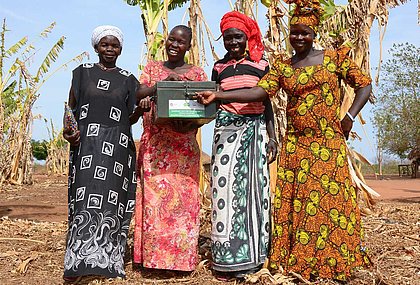
Improving living conditions for refugees and host communities in northern Uganda
Bidibidi is one of the largest camps for refugees in the world. Many of the people are living on the margin of poverty, and food insecurity is a major challenge. Together with our partner AFARD, we support refugees to improve their situation.
more information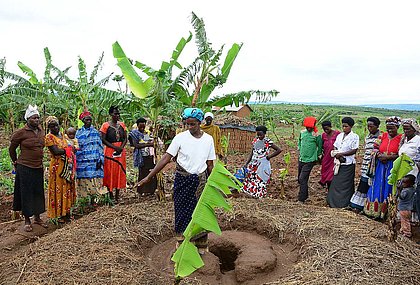
Food security for refugees and host communities in northern Uganda
The Lamwo district in northern Uganda is one of the poorest regions in the country. Nevertheless, the communities here take in refugees from South Sudan. Our project supports refugees and local communities in securing their food, increasing their income and strengthening social cohesion.
more information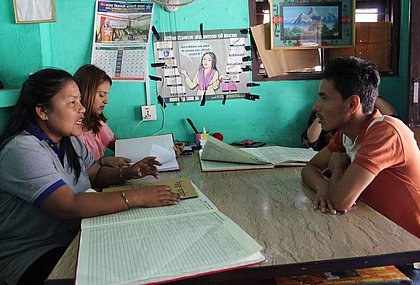
How we stand up for women in Makwanpur
Preventing human trafficking and promoting the political and socio-economic participation of women: This is what AWO International and its partner organisation Women Skill Creation Centre, WoSCC for short, are working for in Makwanpur District in Nepal.
more information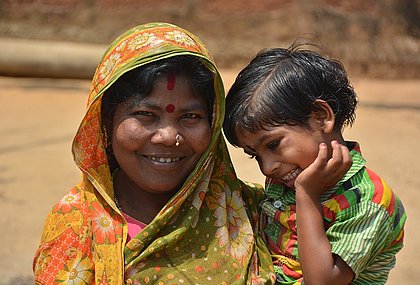
A world without hunger: Securing food in Odisha
Odisha is one of the poorest states in India. Since 2009, AWO International has been successfully implementing poverty reduction and food security projects in three districts with its partner organisation Madhyam. With additional funding from the special initiative "A World Without Hunger", 83 villages in two further districts have been supported since 2015.
more information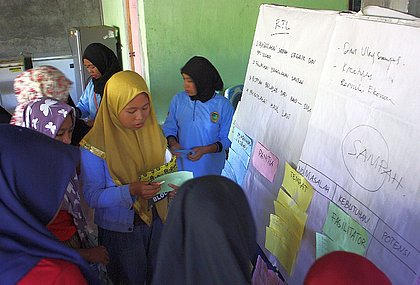
Protecting migrant women from Lombok from human trafficking and violence
Poverty and a lack of job opportunities in many communities on the island of Lombok push people to migrate to seek better economic prospects; a large percentage of these migrants often become victims of human traffickers. Together with our partner organization – ADBMI, we are implementing a project to protect migrating women and men.
more information